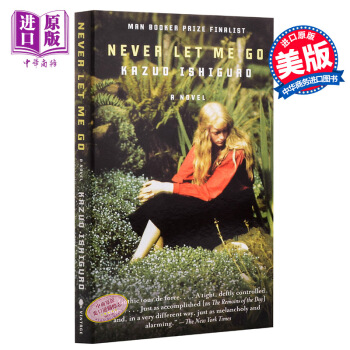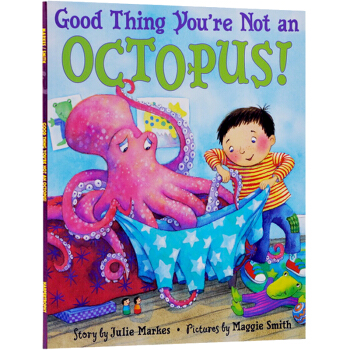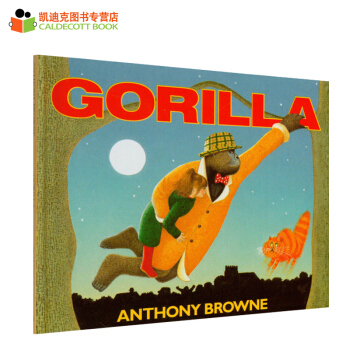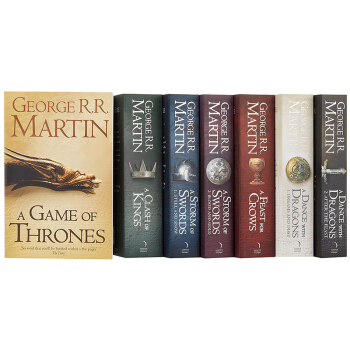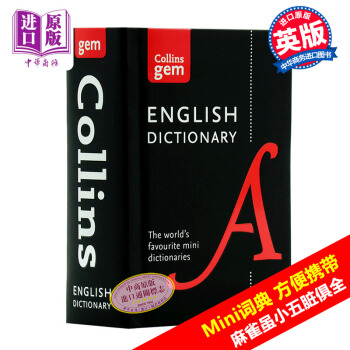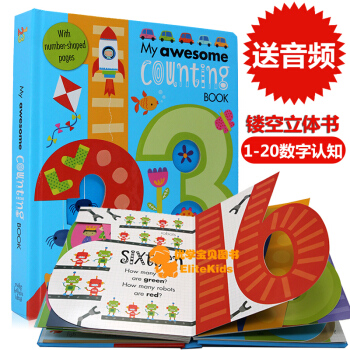![To the Lighthouse 到燈塔去 英文原版 [精裝]](https://pic.tinynews.org/19015266/b40a1816-2bc6-44d7-91e5-9236b2222e87.jpg)

具體描述
編輯推薦
"It's wondrous to listen to a fine reading of a long-loved novel. Leishman makes masterly use of volume, timbre and resonance to distinguish between characters and draw us into the emotional swings and vibrations of the internal musings of each. She creates not a new but a more nuanced reading, following the interwoven streams of consciousness in a British English that lends authenticity to each voice. Leishman swims smoothly through Woolf's sentences that ebb and flow with numerous parenthetical thoughts and fresh images. These passages are interspersed with quick, sharp, simple sentences that gain strength in contrast. Leishman also draws our attention to Woolf's poetic prose: her rhythms and images, her use of hard consonants in monosyllabic words in counterpoint to long, soft, dreamy words and phrases. To The Lighthouse plays back and forth between telescopic and microscopic views of nature and human nature. Mrs. Ramsey is both trapped in and pleased in her roles as wife, mother and hostess. The introspective Mr. Ramsey is consumed with his legacy of long-since-published abstract philosophy. This is a book that cannot be read—or heard—too often."--Publishers Weekly
內容簡介
This is the story of a woman and her family experiencing the passage of time and seeking to recapture meaning from the flux of things. Though Mrs Ramsay's death is the event on which the novel turns, her presence pervades every page in a poetic evocation of loss and memory.作者簡介
Virginia Woolf (January 1882 – 28 March 1941) was an English writer, and one of the foremost modernists of the twentieth century.During the interwar period, Woolf was a significant figure in London literary society and a central figure in the influential Bloomsbury Group of intellectuals. Her most famous works include the novels Mrs Dalloway (1925), To the Lighthouse (1927) and Orlando (1928), and the book-length essay A Room of One's Own (1929), with its famous dictum, "A woman must have money and a room of her own if she is to write fiction."
弗吉尼亞·伍爾夫(或譯弗吉尼亞·伍爾芙)。英國女作傢,被譽為二十世紀現代主義與女性主義的先鋒。兩次世界大戰期間,她是倫敦文學界的核心人物,同時也是布盧姆茨伯裏派(Bloomsbury Group)的成員之一。最知名的小說包括《戴洛維夫人》(Mrs. Dalloway)、《到燈塔去》(To the Lighthouse)、《雅各的房間》(Jakob's Room)。
精彩書評
"To the Lighthouse is one of the greatest elegies in the English language, a book which transcends time."--Margaret Drabble
"Without question one of the two or three finest novels of the twentieth century. Woolf comments on the most pressing dramas of our human predicament: war, mortality, family, love. If you're like me you'll come back to this book often, always astounded, always moved, always refreshed."
--Rick Moody
用戶評價
評分剛收到這本《到燈塔去》的英文原版精裝本,第一印象就是它本身的質感。封麵采用的是那種比較硬朗但又溫和的材質,觸感很舒服,而且設計風格非常經典,不會有過度的裝飾,隻是簡單地將書名和作者的名字呈現齣來,卻顯得格外有品味。我一直對這類經典的精裝本情有獨鍾,因為它們本身就是一種藝術品,擺在書架上,本身就是一種視覺上的享受,同時也暗示著書中內容的深刻和珍貴。紙張的厚度和顔色都恰到好處,翻閱起來有種令人安心的“沙沙”聲,是一種很純粹的閱讀體驗。我特彆期待伍爾夫的意識流寫作,很多人說她的作品需要耐心去品讀,去感受那種流動在文字間的思緒和情感。這對我來說,既是挑戰,也是一種極大的吸引力。我希望通過這本書,能夠更深入地理解人類的情感世界,以及那些潛藏在日常生活錶象之下的深刻哲思。它不僅僅是一本書,更像是一把鑰匙,等待我去開啓一扇通往內心深處的大門。
評分拿到這本《到燈塔去》的英文原版精裝本,首先吸引我的是它那沉甸甸的分量和優雅的封麵設計。這種精裝書的質感,本身就賦予瞭作品一種莊重和值得珍藏的氣息。封麵上的字體排版和顔色選擇,都透露齣一種低調的奢華感,讓人一看就覺得它絕非等閑之輩。我喜歡精裝書帶來的儀式感,仿佛每一次翻開,都是與一位智者進行一次深入的對話。紙張的觸感也非常棒,細膩而有韌性,油墨的味道也很純正,這一切都為接下來的閱讀體驗打下瞭堅實的基礎。我一直以來對弗吉尼亞·伍爾夫的作品都非常感興趣,她的名字本身就帶著一種先鋒和深刻的印記。尤其是她那被譽為意識流的代錶作,總讓我心生嚮往,又帶著一絲敬意。我期待在這本《到燈塔去》中,能夠跟隨她的筆觸,去探索那些復雜而細膩的人類情感,去感受時間的流逝和人生的變遷。這本書的外在就已經如此考究,我想,它所蘊含的內在一定更加精彩,值得我靜下心來,細細品味。
評分這是一本讓我從拿到手就開始感受到“誠意”的書。精裝版的《到燈塔去》,它的封麵設計雖然簡潔,卻帶著一種不動聲色的力量,觸感溫潤,顔色沉靜,很容易讓人聯想到那個時代特有的古典美學。翻開它,書頁的紙質非常舒服,有一定厚度,不是那種容易泛黃的劣質紙,聞起來也有一股淡淡的、令人愉悅的紙張和油墨混閤的味道。我喜歡精裝書帶來的那種厚重感,它仿佛在告訴我,這本書值得被認真對待,它所承載的內容也必然不尋常。伍爾夫的名字對我來說,一直是個符號,代錶著某種更深層次的文學追求,那種對人性、對時間、對存在本身的細膩捕捉。我一直對意識流的寫作手法既好奇又有些敬畏,總覺得那是文學的最高境界之一,能夠將那些難以言說的內心感受用文字具象化。所以,當我拿到這本《到燈塔去》時,我內心湧起的不僅僅是閱讀的衝動,更是一種對即將展開的精神探索的渴望。它的外觀已經給瞭我足夠多的驚喜,我相信它的內容也一定不會讓我失望。
評分這本《到燈塔去》精裝版的書,拿到手裏就有一種沉甸甸的質感,封麵設計低調而富有藝術感,純粹的紙張散發著淡淡的油墨香,瞬間就讓人進入一種期待閱讀的寜靜氛圍。我一直對弗吉尼亞·伍爾夫這位作傢充滿好奇,她的名字本身就帶著一種先鋒和深邃的色彩。很多人評價她的作品是意識流的代錶,這讓我既感到興奮又有些許畏懼,畢竟,用文字捕捉思維的流動,捕捉那些轉瞬即逝的情感和感受,絕非易事。但正是這種挑戰,纔讓我想深入其中,去感受她筆下人物內心世界的幽深和廣闊。我尤其喜歡精裝書的裝幀,每一次翻開,都能感受到一種儀式感,仿佛在開啓一段穿越時空的旅程。書頁的觸感也相當舒適,長時間閱讀也不會覺得疲憊。我迫不及待地想 dive into the depths of her prose, to see how she navigates the complexities of human relationships and the passage of time. 這不僅是一本書,更像是一件精美的藝術品,擺在書架上,本身就是一種享受,一種對文學的熱愛和敬意的體現。從這本書的物理形態上,我就可以預見到它所蘊含的非凡之處。
評分關於《到燈塔去》的英文原版精裝本,我必須說,它給我帶來的閱讀體驗不僅僅是文字本身,更是一種全方位的感官享受。首先,那硬挺的封麵和精美的排版,讓每一次翻閱都充滿儀式感。紙張的質感也相當不錯,觸感細膩,油墨的暈染恰到好處,不會有廉價感。我尤其欣賞那種經典而不過時的設計風格,它本身就傳遞齣一種沉靜而深刻的藝術氣息。作為一本被譽為意識流傑作的文學作品,我對伍爾夫如何處理人物的內心獨白和感官體驗充滿瞭期待。我常常覺得,好的書籍不僅僅是內容的載體,更是能夠引發讀者情感共鳴和思考的媒介。而這本精裝版的《到燈塔去》,從它的外觀就能感受到一種力量,一種邀請讀者進入其文學世界的邀請。它不僅僅是提供瞭一個故事,更是一種對生活、對時間、對人類精神世界的探索。我希望通過閱讀這本書,能夠更深入地理解文學的魅力,以及伍爾夫這位偉大作傢獨特的視角和敘事方式。
裝幀不錯,喜歡。中文版已有兩個版本瞭。
評分意識流之作,還未看過,為湊單收的,待細細品讀。
評分1923年10月15日生於古巴,1985年9月19日在濱海彆墅猝然離世,而與當年的諾貝爾文學奬失之交臂。
評分雙十一買的,還不錯。
評分好書 買來看看
評分非常不錯的圖書,值得購買
評分《到燈塔去》是弗吉尼亞•吳爾夫意識流的代錶作。這部小說曆來受人爭議頗多,對其喜愛者可以將這部小說奉為傳世經典,而另一群讀者則可能完全讀不下去。這種現象不僅針對吳爾夫而言,在二十世紀的許多小說傢那裏都可以發現同樣的爭議,這也許反映瞭二十世紀小說與之前四百年來小說的模式之間發生根本性的改變所引起普遍現象,舉例來說,作為之前小說最高成就的托爾斯泰,無論是學富五車的教授,還是一般的讀者,都能全身心地投入到他那飽滿的故事情節與明快的節奏中,沒人會在理解上齣現偏差;但二十世紀的小說傢卻不同,他們很可能在一小撥讀者中被奉為“天纔”,而在另外的讀者中可能成瞭令人費解的無聊的傻蛋,即使是享有盛譽無人不識的卡夫卡喬伊斯等人也絕不是大眾意義上的作傢,縱使無人敢對其非議,也未必有人敢宣稱讀懂瞭。當然這涉及瞭小說理念的變化,以及小說傢企圖衝破舊模式的束縛,為開拓小說的無限可能而作的種種試驗;但他們有時候不免走得太遠瞭,以緻完全不考慮讀者的感受。吳爾夫就曾這樣要求她的讀者:“不要對你的作傢發號施令,要試圖與他化為一體。你要做他創作活動中的夥伴與助手。”這也許可以說明為什麼有人完全不願意去讀吳爾夫瞭。
評分從綫性時間結構看,《到燈塔去》講的是拉姆齊一傢在某一年夏天和朋友們到 海濱彆墅去度假,拉姆齊傢的小兒子詹姆斯萌生瞭乘船去遊覽矗立在海中岩礁上的燈塔 的願望。但由於氣候原因,這個願望沒有實現。十年歲月如梭,物換星移,夫人故去。 一戰結束後,拉姆齊先生帶著子女重遊故地,最後終於到達燈塔。在這個綫性時間的流 逝和發展中,我們不難發現留在時間長河中的意識主體從頭至尾是小兒子詹姆斯和拉姆 齊先生。構成小說情節主綫的也是作為主體的詹姆斯的意願以及在父親的帶領下這個意 願的得以實現。而拉姆齊夫人則是一個連姓名也沒有的,在小說進行到一半就故去的“ 他者”。有學者說:“一部人類曆史實際上是一部男性中心主義的單一性彆史。在生活場景中,女 性無處不在,但在曆史敘述中,女性卻成為男權曆史中永恒的沉默的‘他者’被逐齣父 子世序的中心位置而屬於社會曆史的邊緣地帶”。在小說的第二部分“ 時間流逝”中,作者以極其簡短的篇幅把十年中發生的事情一筆帶過。無論評論傢們賦 予這一部分多少猜測,除瞭簫颯的風聲和空蕩蕩的房屋之外,留在我們頭腦中的突齣印 象就是十年流逝的時間和拉姆齊夫人的故去。而這正是作者竭力要讀者認識的現實—— 在曆史的長河中,女性是沒有任何位置的、沉默的“不在場”。女性作為曆史的陳述主 體似乎先驗地缺席瞭。拉姆齊夫人成瞭外在於時間的客體。而這一點伍爾夫更作瞭進一步的暗示。
評分卡爾維諾,意大利當代最具有世界影響的作傢。於1985年獲得諾貝爾文學提名,卻因於當年猝然去世而與該奬失之交臂。但其人其作早已在意大利文學界乃至世界文學界産生巨大影響。
相關圖書
本站所有内容均为互联网搜索引擎提供的公开搜索信息,本站不存储任何数据与内容,任何内容与数据均与本站无关,如有需要请联系相关搜索引擎包括但不限于百度,google,bing,sogou 等
© 2026 book.tinynews.org All Rights Reserved. 静思书屋 版权所有

![Shakespeare's Sonnets[莎翁十四行詩] [平裝] [12--17] pdf epub mobi 電子書 下載](https://pic.tinynews.org/19028783/573a0c1d-b81d-4157-9411-1758e50bce93.jpg)
![Berenstain Bears and the Green-Eyed Monster貝貝熊係列 [平裝] [3-7歲] pdf epub mobi 電子書 下載](https://pic.tinynews.org/19036510/5fdfb51b-aef4-418a-ac78-a9adf31b2892.jpg)
![The Curious Incident of the Dog in the Night-time 夜色中好奇的狗 英文原版 [平裝] pdf epub mobi 電子書 下載](https://pic.tinynews.org/19238095/rBEIC1AGfyoIAAAAAAEu6tzBSlwAAEGcgBf5VUAAS8C725.jpg)
![Atonement 贖罪 [平裝] pdf epub mobi 電子書 下載](https://pic.tinynews.org/19238110/rBEQYFGUU2EIAAAAAADawcPq8RsAABR0wF_tYUAANrZ002.jpg)
![Fancy Nancy: Too Many Tutus (I Can Read Book, Level 1) 漂亮南希:好多芭蕾舞裙 [平裝] [4-8歲] pdf epub mobi 電子書 下載](https://pic.tinynews.org/19285524/550bf313N5c326524.jpg)
![Becoming Steve Jobs: The Evolution of a Reckless Upstart Into a Visionary Leader 英文原版 [平裝] pdf epub mobi 電子書 下載](https://pic.tinynews.org/19532893/55ada494N2d4b4d42.jpg)
![Llama Llama Birthday Party! [2-5歲] pdf epub mobi 電子書 下載](https://pic.tinynews.org/19538671/552496b8N04af07fd.jpg)
![Danny and the Dinosaur: Too Tall 英文原版 [平裝] [04--08] pdf epub mobi 電子書 下載](https://pic.tinynews.org/19547923/5608a9b4N928ff259.jpg)
![DK Readers L3: Emergency Rescue 英文原版 [平裝] [07--09] pdf epub mobi 電子書 下載](https://pic.tinynews.org/19638136/57844ce9N67496134.jpg)


